
Ten years ago, Zhou Deyong was trying to rescue his wife who was jailed by Chinese authorities over her faith. Ten years later, his wife and son are doing the same for him.
Every day, You Ling shows up at the Chinese consulate in New York holding a sign calling for her husband’s release. The 62-year-old geological engineer was recently handed an eight-year prison sentence for practicing Falun Gong, a meditation discipline the Chinese Communist Party (CCP) has brutally suppressed since 1999.
Zhou’s son, Zhou You, a Florida resident, recounted the family’s story of persecution at a congressional briefing hosted by the International Religious Freedom Caucus on May 23.
“My grandfather died last year. I couldn’t go to the funeral, because if I return to China, I will be in jail. My father couldn’t make it, because he was already in jail,” Zhou You said at the event hosted by Rep. Gus Bilirakis (R-Fla.), chairman of the International Religious Freedom Caucus.
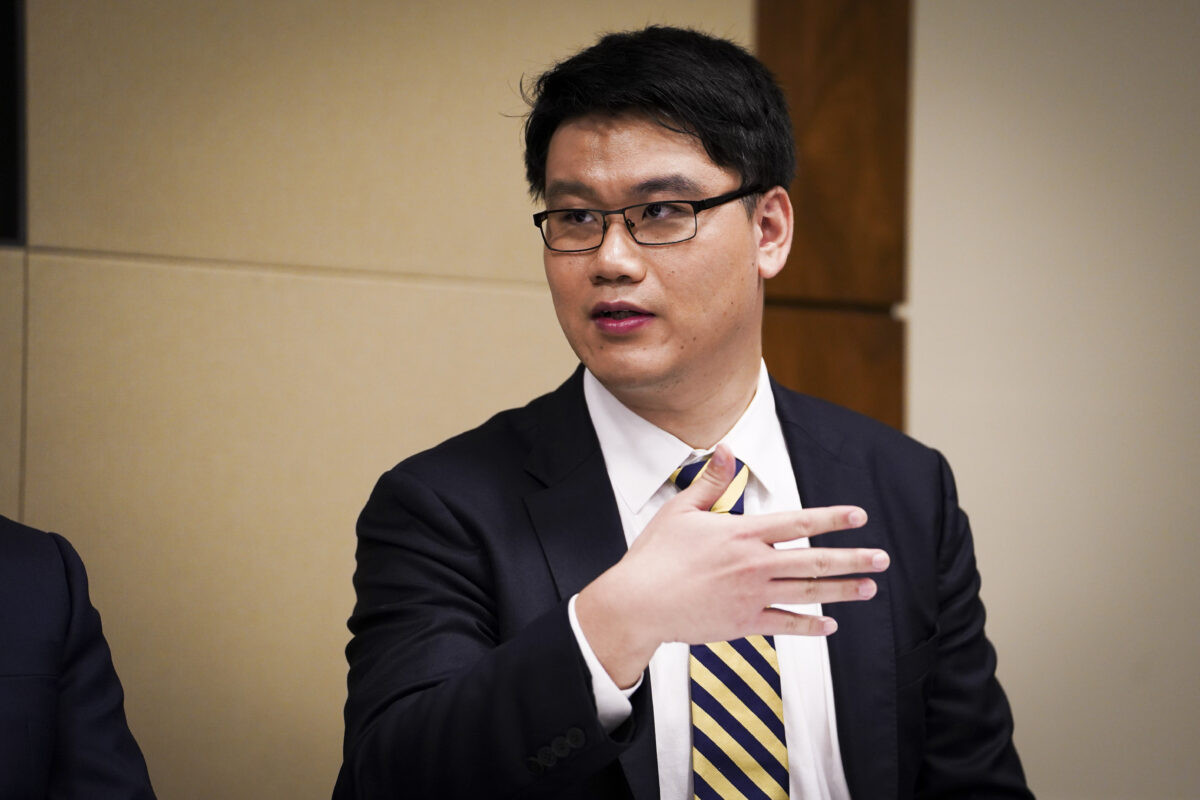

Zhou You was one of three who shared their stories of loss and separation under the Chinese regime’s 24-year-long campaign that has resulted in millions of Falun Gong practitioners being detained in prisons, black jails, and other facilities.
The spiritual practice, which involves a set of meditative exercises and moral teaching centered on the principles of truthfulness, compassion, and tolerance, surged in popularity in the 1990s, leading to an estimated 100 million practitioners in China. This was perceived as a threat to the Communist Party’s grip on power, and the regime unleashed a sweeping persecution in July 1999, which still persists today.
“Falun Gong practitioners suffer from persecution, intimidation, censorship, and imprisonment, forced labor, torture, organ harvesting, and even death at the hands of the CCP solely because of adherence to their religious beliefs,” said Bilirakis, calling the repression campaign “deplorable.”
“This is not something that just affects people in China,” he said, noting the stories presented at the panel. “This is something that has a direct impact, it has a direct impact on the U.S. citizens and people living in the United States of America.”
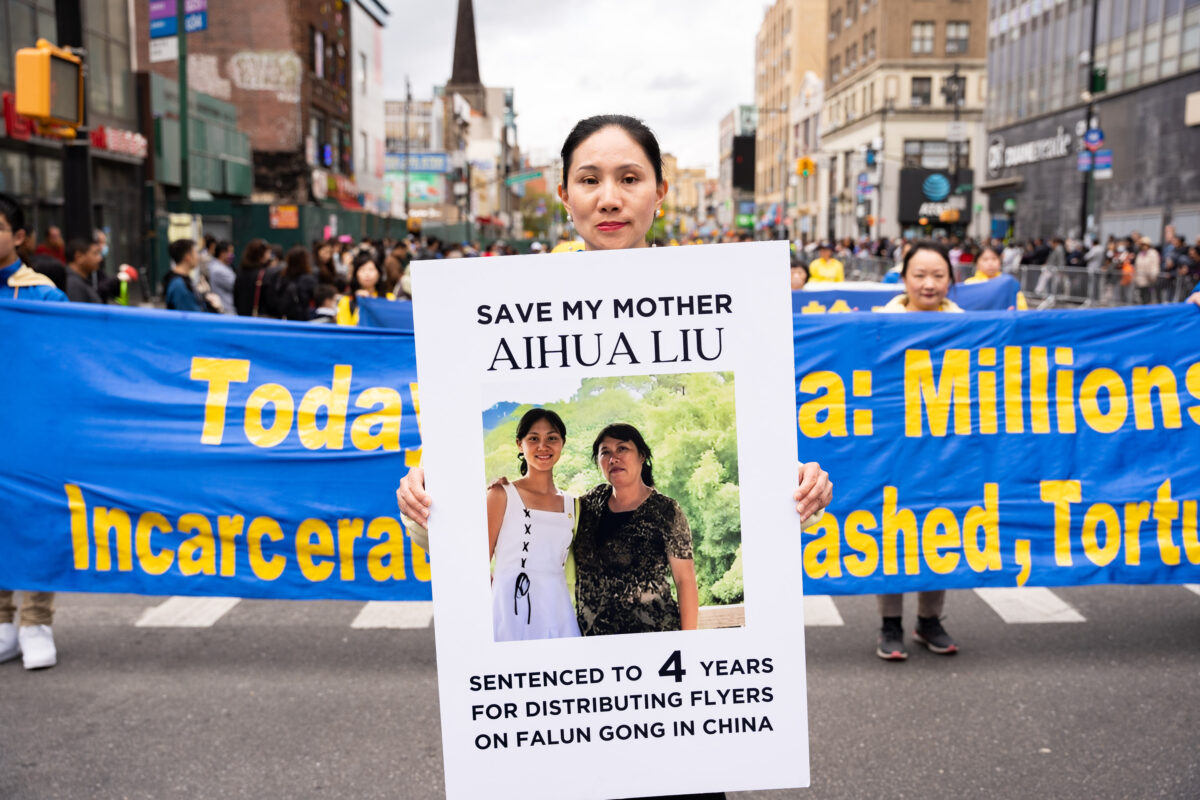

As Lydia Wang, another panelist, prepared her speech over the weekend, she stared at a 1996 photo of herself standing side by side with her parents and three siblings in China.
Over the next two decades, her family has never been able to take another such photo together.
It was hard for Wang to recollect those painful memories; she was still in high school when the persecution started.
Wang still remembers how the police broke into their home in around 2000 and made a mess of everything before forcibly taking away Wang’s father in front of the four children, all crying.
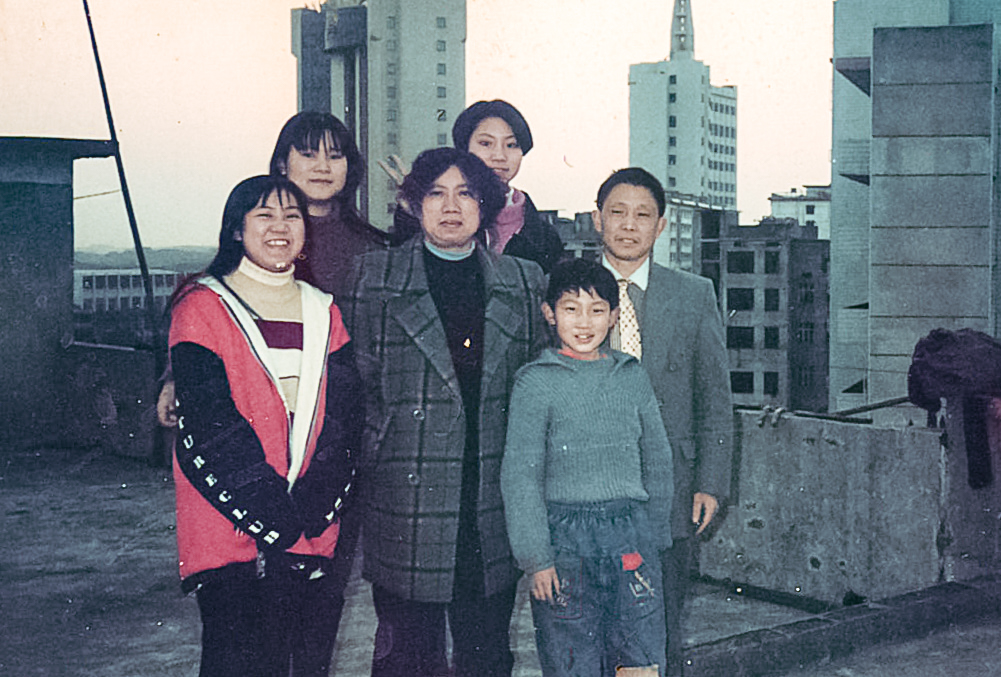

The police didn’t hesitate to use force as the children watched. They beat Wang’s father so hard that he passed out, Wang recalled.
“Anything that had some value, they took them away,” Wang, now a New York resident, told The Epoch Times.
That was one of the many arrests and police harassment that the family would undergo over the years. The second time, about two years later, Wang remembered visiting her jailed father, who was only allowed to meet with them behind soundproof glass. He had to write on a chalkboard to communicate.
In brief terms, he told them his situation wasn’t good. The guards directed prisoners to beat him, he told them. “Why is your mom not here?” Wang remembered her father asking. He wanted Wang’s mother to tell the guards that he was wronged and get him freed, she said.
Wang and her elder sister just kept crying.
“We didn’t know what to do, because our mom was arrested as well,” she said.
After his fourth imprisonment in February 2003, Wang’s father was emaciated with diabetes and kidney failure.
“If this man isn’t released today, tomorrow he will be a dead body,” Wang remembered the prison doctor warning the guards, which prompted his release.
After returning home, her father wouldn’t talk much about what he had been through. But the physical impacts were obvious: every nerve in his body would hurt so much that he had trouble falling asleep. There were bruises on his body. His leg was so swollen that a pit would appear if it was lightly pressed with a hand, Wang said.
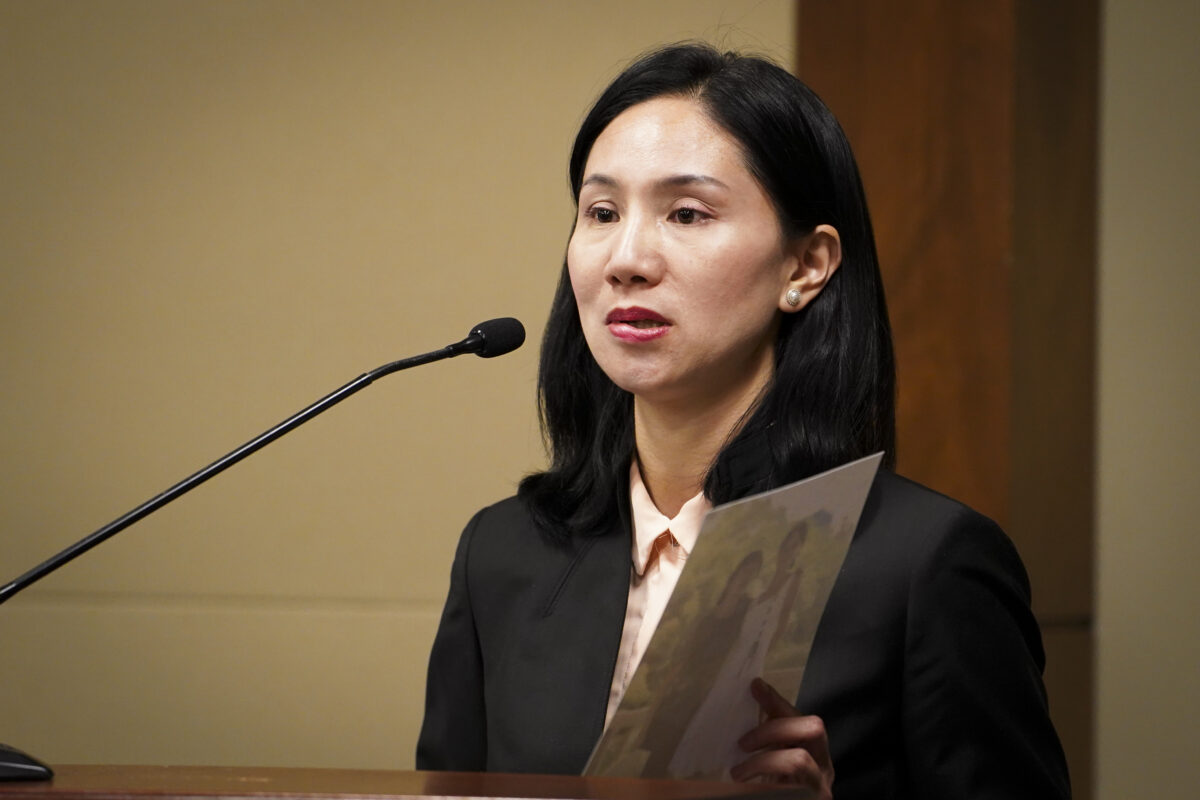

Wang’s father died in 2009 due to afflictions that he never quite recovered from. Meanwhile, police continued to target the rest of the family, arresting Wang’s mother a staggering 11 times in an attempt to coerce her to renounce her faith. One of the arrests took place shortly after Wang escaped to the United States in 2012. Wang fled the country in a bid to keep her second child, which authorities wanted her to abort in line with Beijing’s stringent one-child policy.
In March this year, Wang’s mother was sentenced to four years in prison after more than half a year of detention without trial. Wang’s second child, now 11, has never been able to meet her grandmother in China.
Like Wang and Zhou, New York architect Simon Zhang was helpless in the United States when his mother Ji Yunzhi was arrested during the Chinese New Year in 2022, three days before the Beijing Winter Olympics.
Ji, 65, died after 48 days in detention, during which guards subjected her to torture, forced feeding, and humiliation. Handcuffs and iron fetters confined her to the hospital bed for the last month of her life.
“My mom had one strong wish: to see for herself how people can practice Falun Gong freely in America,” Zhang said at the event, adding that his mother was unable to secure a passport to the United States because of her belief in Falun Gong.
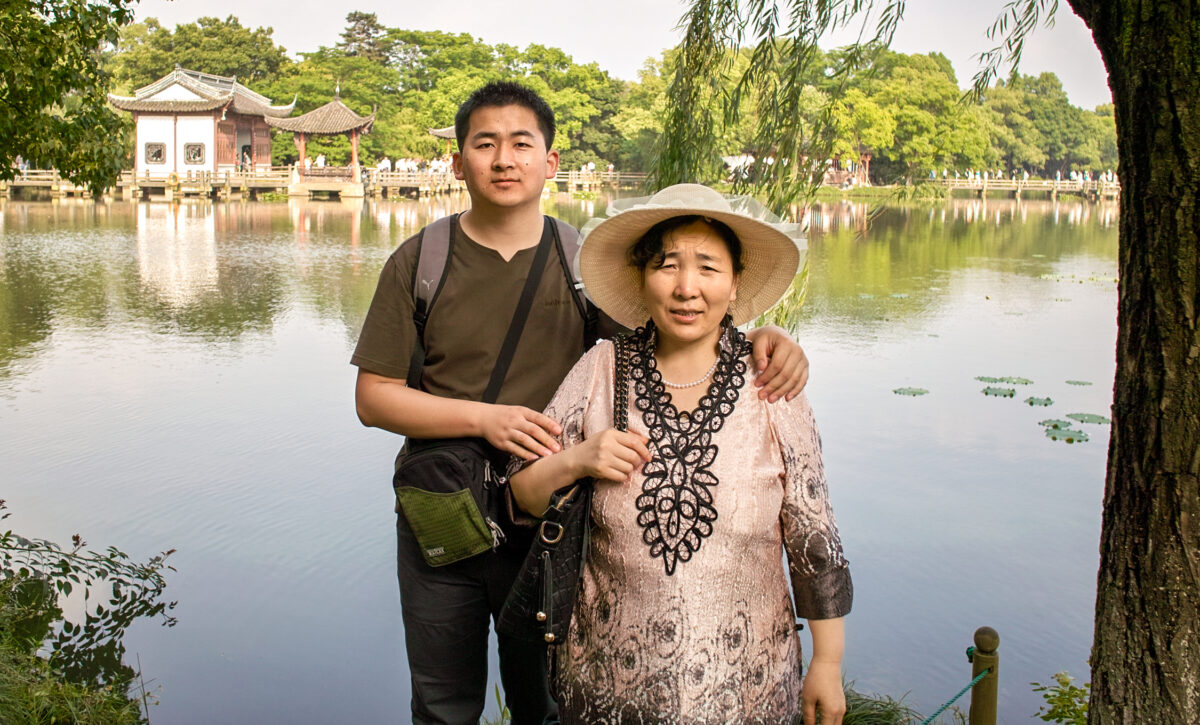

“Now she would never have that chance.”
“All she did was stay faithful to the principles of Falun Gong, truthfulness, compassion, and tolerance,” he added, recalling that in 2007, after Ji was hospitalized for a seizure suffered due to police harassment, his cousin asked her why she couldn’t “simply keep quiet and practice at home” without distributing flyers about the persecution to their faith.
“Look how much you have paid for,” his cousin said.
In a “very weak voice,” Ji replied that she “can’t.”
“I have benefited so much from practicing Falun Gong. I can’t keep quiet when Falun Gong is defamed so badly.”
Nina Shea, director of the Center for Religious Freedom at the Hudson Institute and former commissioner at the U.S. Commission on International Religious Freedom, described the Chinese regime’s repression of Falun Gong as “one of the world’s most unrecognized and serious episodes of religious persecution and possible genocide in the world today.”
In addition to an expansive domestic campaign targeting the faith group, including the killing of detained practitioners for their organs, the regime also has agents overseas to aid its repression.
Shea cited a recent Department of Justice indictment of two New York men allegedly running a secret police station for Beijing. The word Falun Gong appeared 13 times in the indictment.
“It’s part of the CCP’s obsessive worldwide crackdown on Falun Gong,” she said at the briefing.
Wang remains separated from her elder daughter who’s still in China. Wang was forced to divorce her husband due to the persecution and her eldest daughter lives with her paternal grandparents.
“During this persecution, one daughter lost her mother, the other lost her father,” she said.
Wang’s relatives in China have tried repeatedly to see her mother in prison without success.
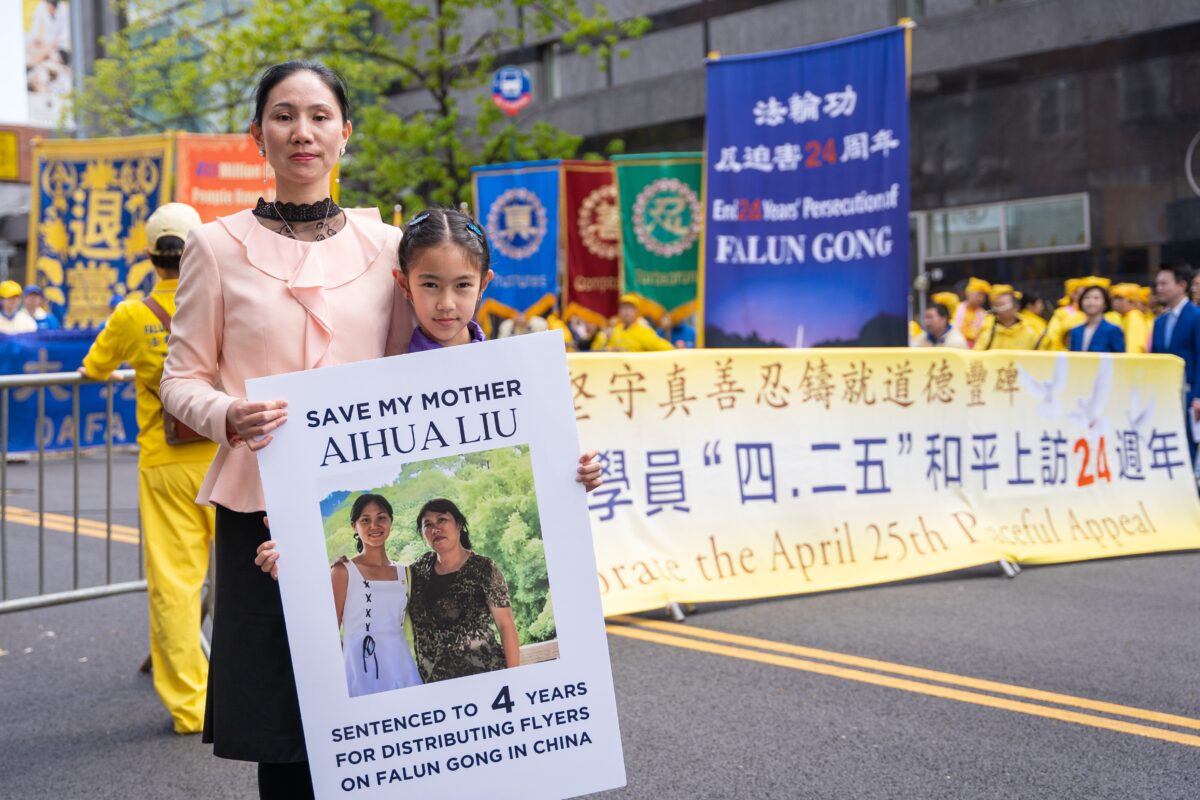

She implored the Florida congressman and other listeners at the event to help raise her mother’s case so that she can be released and reunite with her in New York.
Zhou noted that his 62-year-old father has lost almost all his teeth.
“He can’t eat meat, vegetables, or even rice because he can’t bite. The only thing he can eat is buns soaked in soup,” he said.
Bilirakis, a sponsor of the Stop Forced Organ Harvesting Act that passed the House in March, said that he wants to see Congress do more to bring such abuses to an end.
“We must do more,” he said. “No person should ever be intimidated, forced from their ancestral homeland, imprisoned, or murdered simply because of their beliefs.”
“We’ve just begun to fight.”




Discount Applied Successfully!
Your savings have been added to the cart.